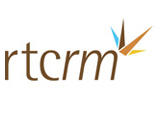D.C. Small Businesses: Expand Your Social Horizons
Facebook and Twitter are so ubiquitous that for small D.C. businesses and organizations, having a presence on both has become a cost of entry. However, those sites should not be small businesses’ only social media marketing forums. There are other social media platforms that offer businesses the opportunity to engage with large consumer audiences before they’ve entered the shop, reinforce their brand after an in-person interaction, and keep their brand in the consumer’s conversation.
By Rebecca Johnson, Strategist
 Key Information
Key Information For small businesses and organizations, social media is both a necessary marketing tool to drive new business and a critical touchpoint in the lifecycle of a customer’s engagement. Yet while Twitter and Facebook are great for awareness, there are other social media vehicles that offer more targeted, engaging, and retention-focused opportunities. One often-overlooked platform is Yelp, founded in 2004 to “help people find great local businesses like dentists, hair stylists, mechanic, etc.” Since then the site has blossomed, with more than 53 million people visiting the site in the past 30 days and over 20 million local, user-generated reviews. D.C. bookstore and coffee shop Politics & Prose features its Yelp page alongside its other social media assets (Facebook and Twitter) on its homepage, allowing visitors to quickly access reviews of the store’s books, ambience, food, and neighborhood details.
TripAdvisor, a pioneer of user-generated content, features user reviews and advice on hotels, shops, sites, etc., and offers D.C. museums, monuments, attractions, and even neighborhoods the chance to strut their stuff for tourists and visitors. The site uses submitted ratings to create ranked lists, such as Things To Do, Places To Stay, and Sites To Visit, which over 50 million unique monthly visitors use to determine their travel plans.
Urbanspoon and OpenTable should be on all D.C. restaurants’ social media radar, as these sites are hotspots for both local and visiting diners. Site users can add reviews and ratings, check out menus, see what critics and bloggers reviews, get other dining recommendations based on their profile or browsing history and make online reservations. Restaurant owners can control their restaurant’s page, keeping important information and specials up-to-date and creating a restaurant microsite on a search-friendly, highly trafficked website.
Implications and Action Items
- Choose wisely. Small businesses have limited time and funds, so they should be selective and strategic with which social platforms they spend their time on. Pick a platform that’s best for your industry, customers, and bottom line.
- Prepare for feedback. Unfortunately, not every review is going to be 5 stars. When that negative comment appears, use it as an opportunity to reach out, find out specifically what happened and use this event as a learning and business improvement experience.
- Look for efficient solutions. With so many websites and social media platforms out there, small businesses do not have enough time and resources to manage this ever-changing landscape. To save time, look for resources like SinglePlatform, which manages different social media accounts, and post information to those accounts in one place.